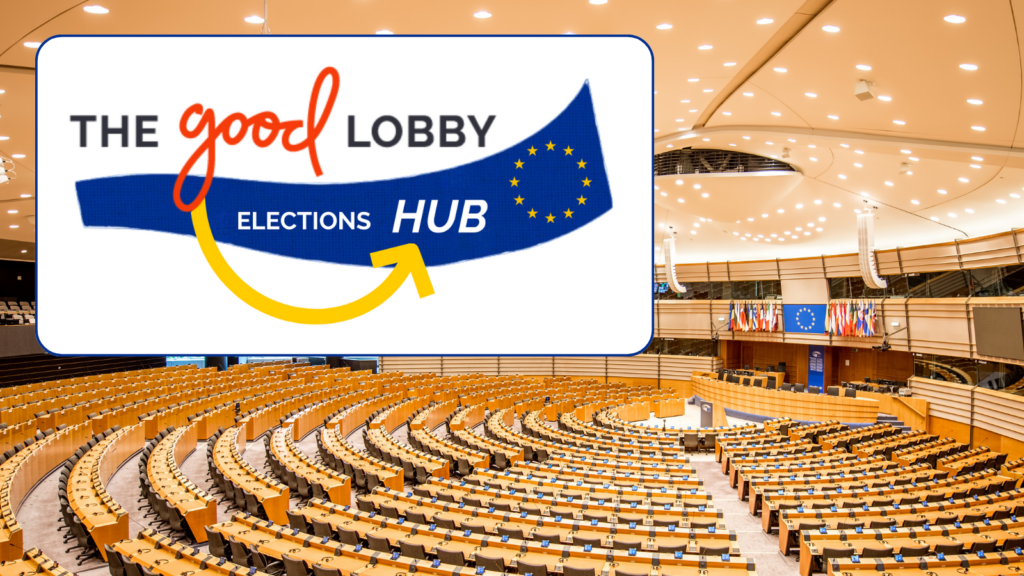In her final address, von der Leyen focuses on competitiveness and ignores the agenda that got her elected in 2019.
Commission President Ursula von der Leyen announced her intention to run for re-election last February. Since then, she has known that the week of 22 April would be her last chance to speak to the European Parliament in a plenary session, a last address before an institution that will likely be in the position to vote yes or no on whether she should continue as Commission President until 2029.
Her speech was scheduled for the topical debate on the Strategic Agenda, the long-term priorities that the European Council is currently identifying for the 2024-2029 period. The debate was an opportunity for von der Leyen to take stock of what has been achieved in the past five years, and what the EU should focus on going forward. But instead of citing her record and engaging with MEPs for the last time before the EU elections, von der Leyen decided to take a different approach.
The EU Green Deal, the war in Ukraine, rule of law, all absent from VDL’s speech
Whereas back in 2019, von der Leyen made it clear that the Green Deal would be the main pillar of her agenda, the German Commission President did not mention it once in her 1500 word speech.
Surprisingly, support for Ukraine was not mentioned either. Nor was the rule of law, democracy, freedom, values. Instead, von der Leyen decided to exclusively focus on the topic of restoring European competitiveness. “Today, I want to look at four of the basic factors that determine costs, prices and productivity in Europe,” she said before outlining her priorities for the next term.
Top priority going forward… completing the Capital Markets Union
First on the agenda is completing the Capital Markets Union, to ensure a single market for capital in the EU and facilitate investments across Europe. Second, is reducing energy costs which “continue to affect our competitiveness”. Third is to address the labour and skills shortage affecting the EU. Lastly, von der Leyen spoke about the importance of establishing a level playing field in global trade.
Following her speech, MEPs took turns to respond to the Commission President’s remarks. Yet von der Leyen did not stay long. A few minutes in – and much to the surprise of certain MEPs – von der Leyen stood up from her seat and exited the room. Commissioner Šefčovič took care of the closing remarks.
Is von der Leyen playing the long-game?
Von der Leyen’s exit from the session triggered complaints from MEPs. “Ms von der Leyen is making a mockery out of this house by disappearing after only a few minutes,” said Marc Botenga from The Left.
Yet von der Leyen seems unbothered about this. She knows better than anyone that it is the European Council and not MEPs that will have to decide whether to nominate her for another term as Commission President. After all, it was EU leaders who favoured her over EPP Spitzenkandidat Manfred Weber in the summer of 2019 for the position. Von der Leyen’s decision to not run as an MEP already foreshadowed her lack of interest in the lead candidate system.
A risky decision when the European Parliament itself will likely vote on her reflection as Commission President later on in the year.
How Parliament has increasingly used its confirmation powers to shape incoming Commissions
Through various Treaty revisions and its own desire to make its voice heard, the European Parliament’s appetite to flex its constitutional clout has only grown in the past decades. In 2004, Parliament rejected for the first time the nomination of a Commissioner-designate. Italy’s Rocco Buttiglione for Justice Commissioner was deemed inadequate on account of his remarks on women and homosexuality.
In 2019, MEPs rejected as many as three Commissioner candidates. The nominees from Romania and Bulgaria were deemed inadmissible due to conflict of interest concerns, whereas the rejection of France’s Sylvie Goulard was interpreted as a way for the EPP to enact revenge over Emmanuel Macron’s refusal to accept Manfred Weber as Spitzenkandidat and nominee for Commission President. “Guys we are going to kill her in the vote later but do not say,” could be read in the background of a now-deleted tweet by the EPP group.
How long until the European Parliament rejects a European Council nominee for Commissioner President?
The European Parliament has to this date never refused to elect the European Council’s nominee for Commission President. Yet von der Leyen only secured the support of the Parliament by a margin of 9 votes in 2019.
According to the results of a poll published by POLITICO, von der Leyen’s popularity has not consolidated across the political groups. Only 1 in 5 MEPs polled back her candidacy for a second term at the head of the Commission. In addition, MEPs in her own party are not unanimous in their support for her, with only 53% of respondents supporting her re-election.
The next European Parliament will likely vote on her re-election later this year. The vote will be carried out via a secret ballot – MEPs will be able to vote their conscience. It is in von der Leyen’s interest to ingratiate herself with the next crop of MEPs. If nominated, von der Leyen will have to negotiate her agenda with the political groups. Whichever group she chooses to prioritise will likely affect the entire 2024-2029 term.
Are you ready for the EU elections?
The Good Lobby Elections HUB